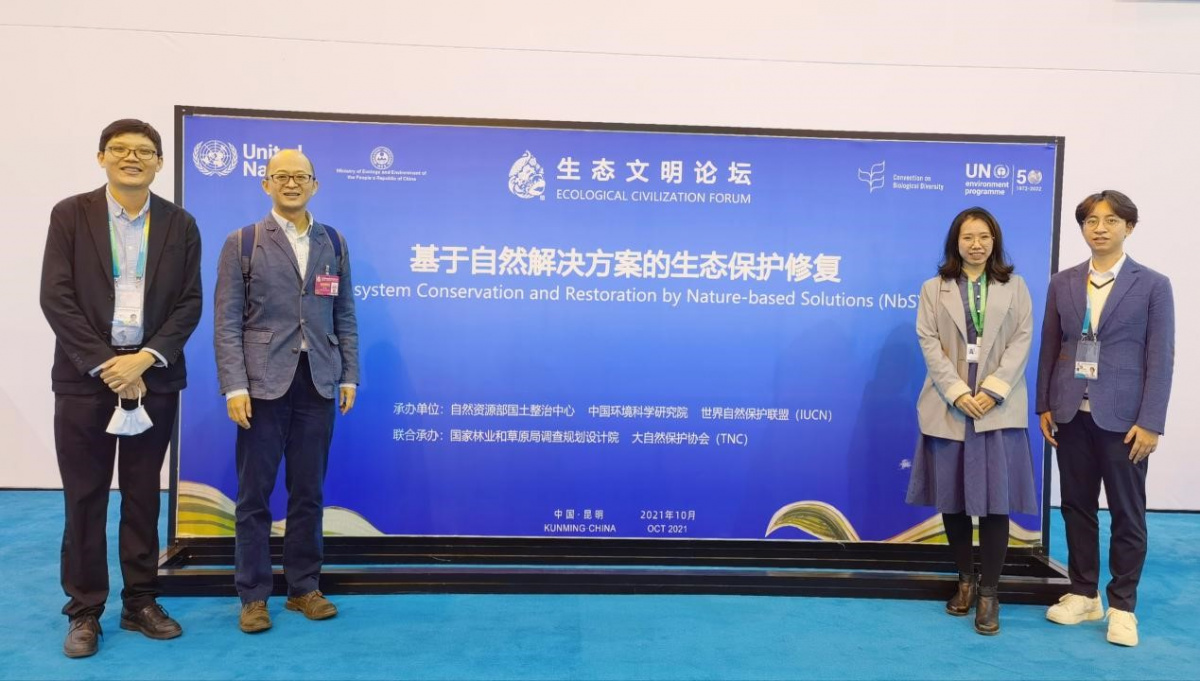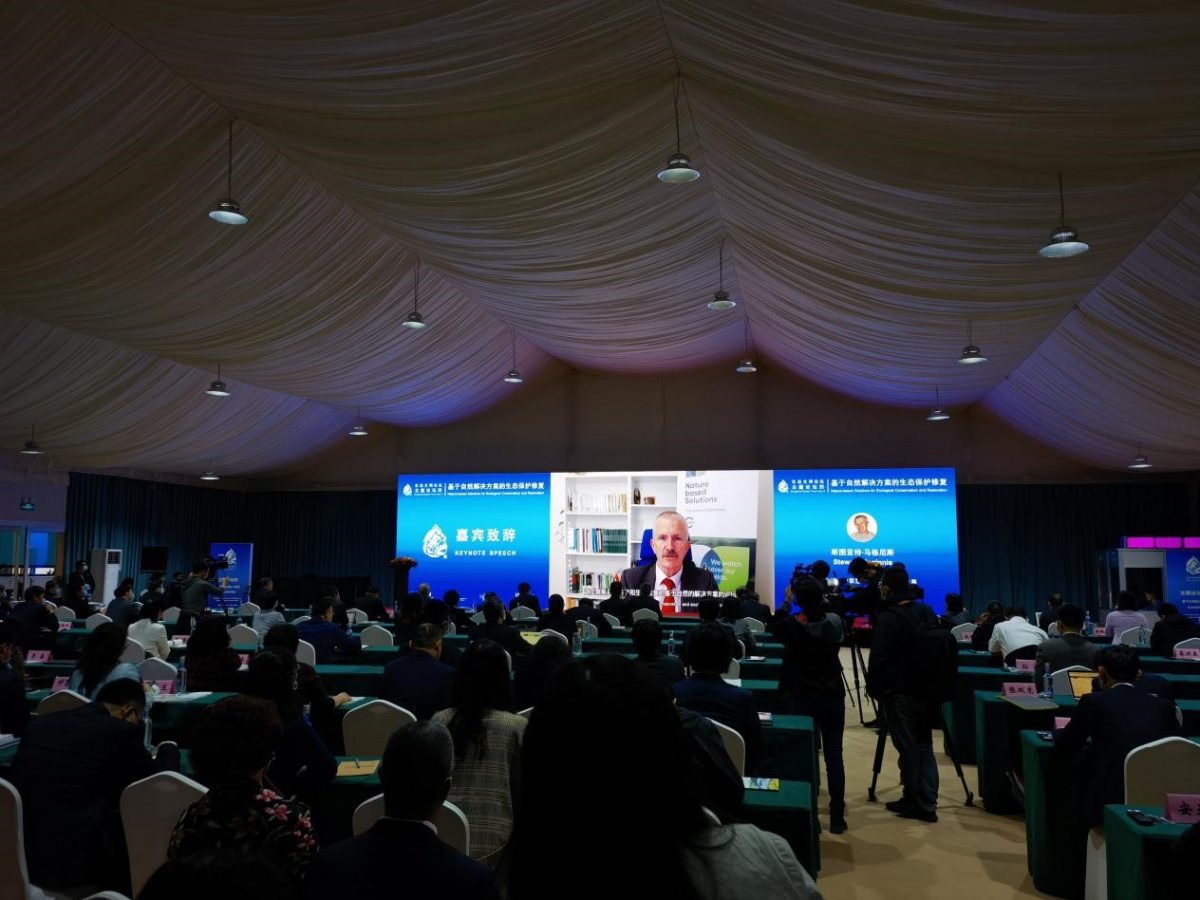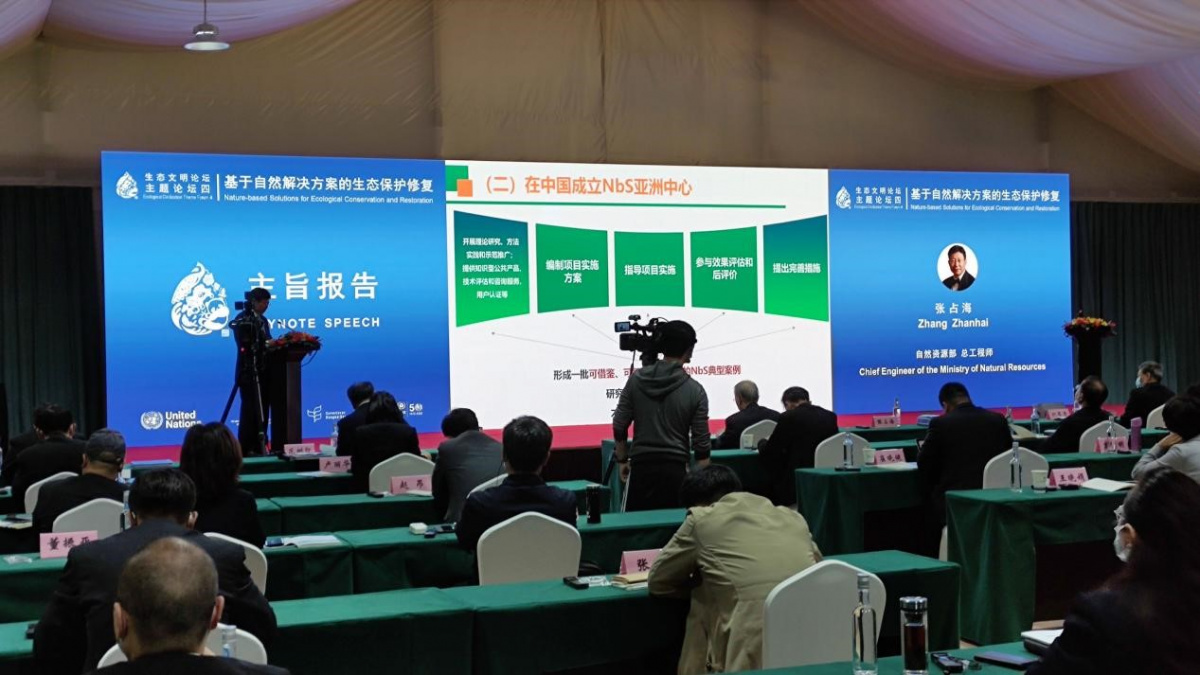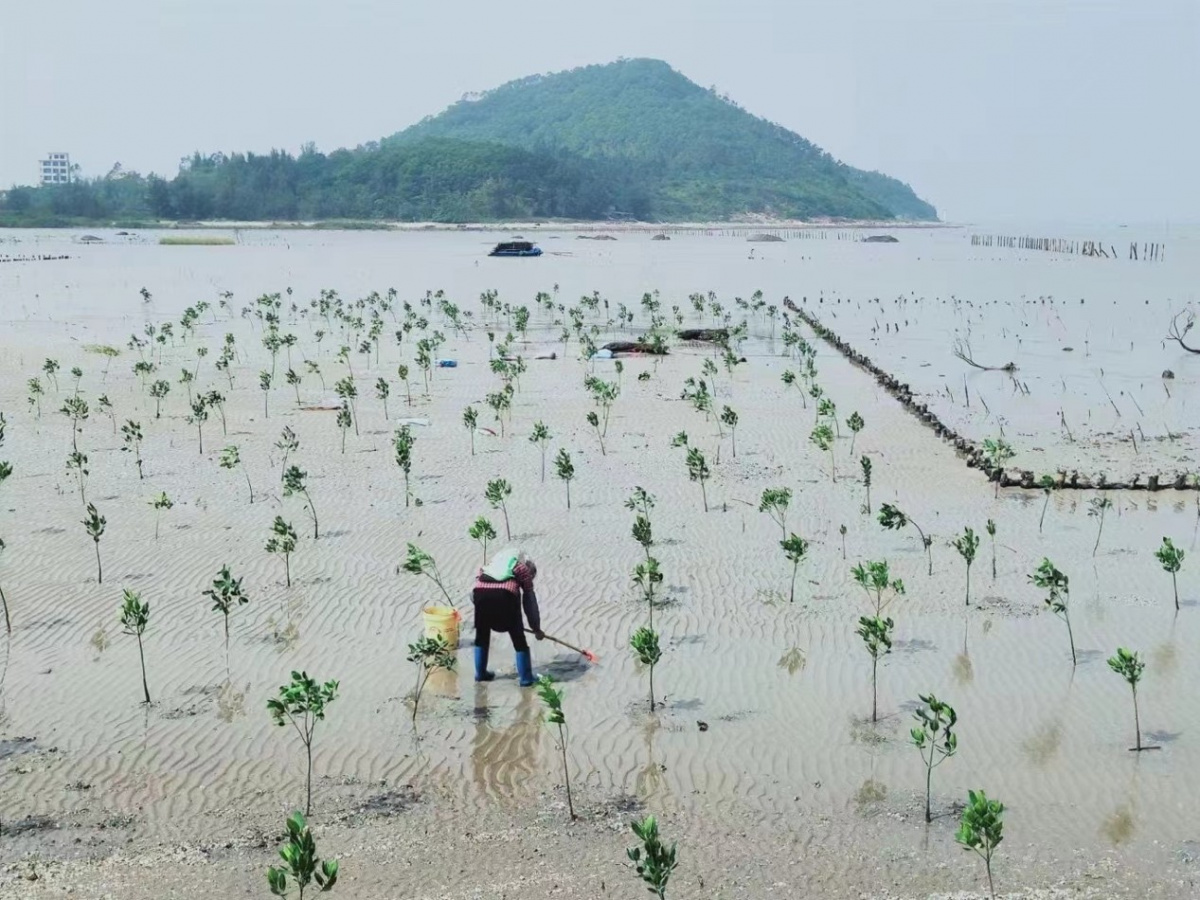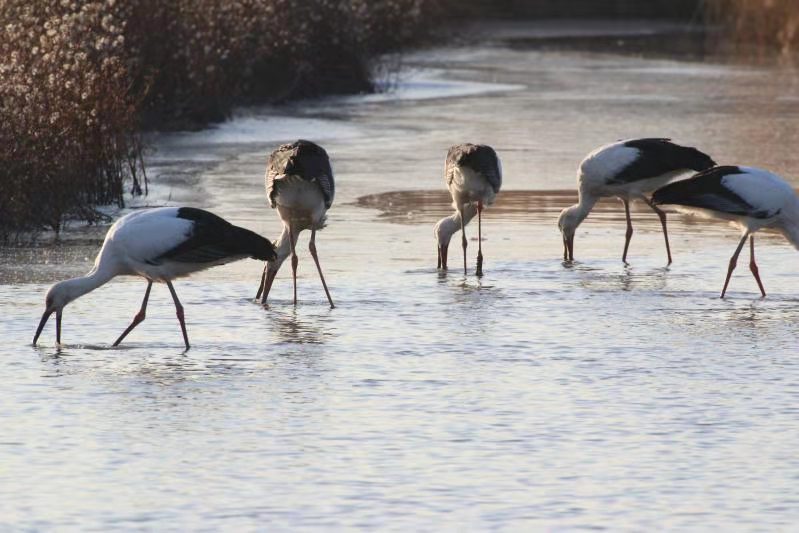Nature-based Solutions for ecological conservation and restoration explored at CBD COP15 in China
Kunming, China (IUCN) – China’s Ministry of Natural Resources, together with IUCN, organised an event, “Nature-based Solutions for Ecological Conservation and Restoration,” as part of the Ecological Civilisation Forum during the Convention on Biological Diversity Conference of the Parties 15th meeting (CBD COP15) held in October in Kunming, China.
Jointly organised by the Land Consolidation and Rehabilitation Center of the Ministry of Natural Resources (MNR), the Chinese Research Academy of Environmental Sciences and IUCN, the event exploring Nature-based Solutions (NbS) was attended by more than 100 delegates from international organisations, national authorities, scientific institutions, local communities, NGOs and enterprises as well as other related fields.
During the event, Mr Ren Junsheng, Vice Governor of Yunnan Province, Mr Stewart Maginnis, IUCN Deputy Director General and Mr Zhang Zhanhai, Chief Engineer of the Ministry of Natural Resources delivered keynote speeches. In addition, Mr Zhang Xinsheng, former President of IUCN, Prof. Fu Bojie, Academician of the Chinese Academy of Sciences, Ms Maria Helena Semdo, Deputy Director-General of the Food and Agriculture Organization of the United Nations (FAO), Dr Emmanuelle Cohen-Shacham, Lead of the NbS Thematic Group of IUCN’s Commission on Ecosystem Management, and Dr Luo Ming, Deputy Director of Land Consolidation and Rehabilitation Center, also delivered technical reports on NbS, ecological protection and restoration.
Mr Zhang Zhanhai said: “China boasts a good stage for the practice of NbS, because it coincides with President Xi Jinping's notion on ecological civilisation and the Chinese’ ecological and cultural traditions in many ways, including its objectives in addressing societal challenges such as climate change mitigation; its integrated consideration of the relationships among economic, social and ecological systems; and, its comprehensive approach of seeking synergy between socioeconomic returns and eco-environmental benefits to promote the harmonious coexistence of humans and nature and maintain the ecological security of the earth.”
He also mentioned: “The MNR will adhere to the system-oriented concept by carrying out ecological restoration scientifically; collecting a number of representative case studies of NbS for learning; replicating and promoting them through the NbS Asia Hub to be established in cooperation with IUCN; and, developing national NbS standards to continuously mainstream NbS.”
IUCN's Mr Stewart Maginnis said: "Empirical evidence has proven that NbS is a powerful ally to address societal challenges through investing in conservation and restoration. In framing the definition, principles and Global Standard for NbS, IUCN drew heavily on the lessons from the rehabilitation of the Loess Plateau, demonstrating that nature truly is mankind’s ally. It shows that impoverished livelihoods can be enhanced, degraded landscapes restored and lost biodiversity recovered simultaneously.”
Mr Maginnis also suggested that China could play a leading role by advocating for the inclusion of NbS in the Post-2020 Global Biodiversity Framework and ensuring it is formally recognised by the Parties and, ultimately, that the world fully benefits from the proven contribution it can make to reversing biodiversity loss, enhancing livelihoods and optimising the equitable and sustainable use of nature.
During the event, experts from the World Economic Forum, UK Centre for Ecology and Hydrology, Tsinghua University, the Chinese Research Academy of Environmental Sciences, the Center for Satellite Application on Ecology and Environment of the Ministry of Ecology and Environment, Planning and Design Institute of the National Forestry and Grassland Administration and other institutions shared opinions and experiences on a range of topics, including biodiversity conservation, ecological conservation 'red lines', ecological restoration, among others.
In addition, a collection of case studies on ecological restoration in China was released at the event. MNR and IUCN are looking for opportunities to make these case studies available in English, to ensure they contribute to the global NbS knowledge development through the NbS Asia Hub, which will be established in China.
Notes:
In 2012, the IUCN World Conservation Congress adopted the IUCN Programme 2013-2016, making NbS one of the three global priorities of the Union. At the IUCN Congress in 2016, a formal definition and list of principles were adopted in a resolution by the IUCN Union. By 2020, following a two-year global consultation, IUCN launched the Global Standard for Nature-based Solutions, which was featured at the IUCN Congress in September this year. IUCN and MNR collaborated to officially release the Chinese version of the NbS Global Standard in 2021, and the principles of the Standard were also adopted by the Guidelines for Ecological Protection and Restoration Projects in Mountains, Rivers, Forests, Farmlands, Lakes and Grasslands, issued by MNR, Ministry of Finance and Ministry of Ecology and Environment.
About IUCN and China:
IUCN first visited China in 1979, when it initiated discussions with the Chinese government about the potential for future collaboration. In the 1980s, IUCN launched a number of preliminary activities in China, bringing its global and regional strengths into play to assist China to cooperate with the global community on key environmental issues, including panda conservation. In 1996, the Ministry of Foreign Affairs of China officially joined IUCN as a State Member; and, in December 2019, this responsibility was assumed by the Ministry of Natural Resources, and the two Parties has signed the MoU in December 2020. As of October 2021, there are 55 IUCN Members and over 500 Commission members in China.
For more information:
Please contact Yiyun Sun, Communications and Programme Officer, IUCN China, email: yiyun.sun@iucn.org
Or visit the IUCN website: https://www.iucn.org/theme/nature-based-solutions
